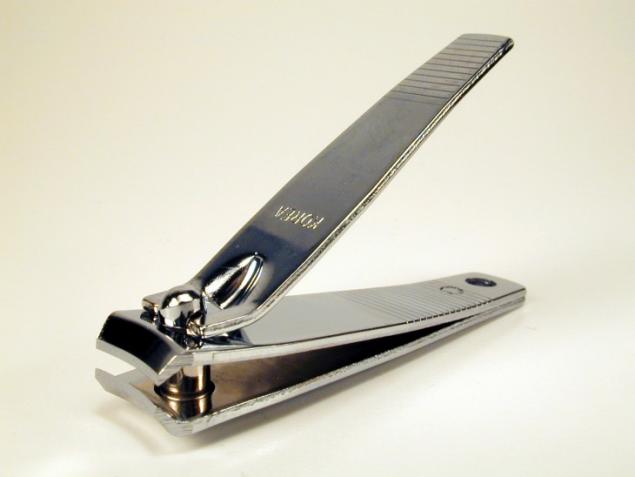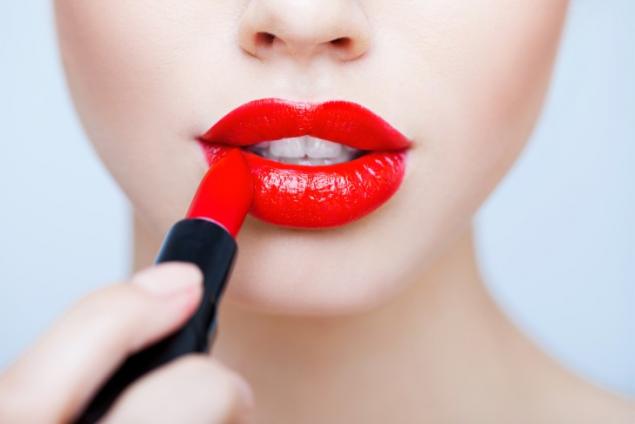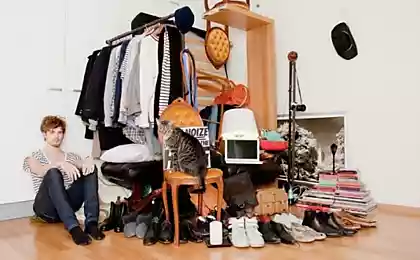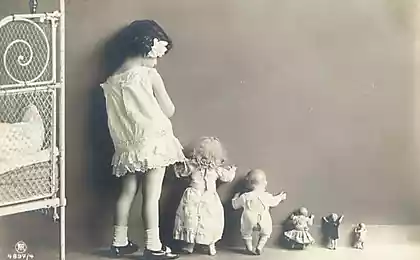834
15 personal items that can not be shared with anyone
Dr. Whitney Bowe, a dermatologist from New York and Philip Tierno, a professor of microbiology, listed personal things that you should never share with anyone, in the name of your (and others') health.
1. Bar soaps h2> After each use, germs and bacteria from your skin live for a while on the surface of soap, some of these microorganisms are harmless to you, but cause disease in others. A piece of soap - not a successful killer microbes, such as alcohol-containing liquids.
2. Towel h2> If the towel unpleasant smells - means it is well bred bacteria, fungi and mold. Bath - a great environment for their development, particularly if they are constantly hanging in a wet basement or, even worse, do not have time to dry out completely.
3. Sponge h2> Given that the sponge does not often have time to completely dry - a perfect breeding ground for bacteria of the same, as in the towel. So watch out for washcloths - dry them, and not share them with anyone.
4. Shaving accessories h2> «When you shave, the razor to accumulate dead skin cells mixed with bacteria. Accordingly, the more people use the razor, the higher the risk of catching an infection. At the same time harmful bacteria from one person may not cause anything, and the other - to become the cause of the disease. Furthermore, suggests the possibility of mikroporezy shaving, razor can serve as vectors of diseases such as hepatitis or HIV, "- says Dr. Bowe.
5. Nail clippers h2> nail clippers can carry fungal bacteria, so either treat them with alcohol after each use, or their personal use only.
6. Tweezers h2> If you use the tweezers only sticking pulling of hair - to take someone else's pretty safe forceps, the doctor says. But if you're going to, for example, to work hard with his face, for example, podkovyrivat ingrown hair, tweezers instantly becomes a potential carrier of diseases transmitted through blood: the same hepatitis and HIV among them. "It is very rare, but it is a possible cause of the infection," - says Dr. Bowe. Ideally, you want to handle the tweezers with alcohol before each use.
7. Any creams banks h2> «Every time someone puts their fingers in the cream, it leaves there the bacteria that can be passed to the next person who will use the cream. Among such bacteria can be hypothetically staphylococci and streptococci, which many carry on themselves without much harm, but they can be harmful to others - to cause folliculitis (inflammation of the hair follicle) and pimples "- says Dr. Bowe.
8. Trimmers h2> According to Dr. Bowe, if you do not disinfect the trimmer as it is required to do in the bars, they may also serve as carriers of the bacteria that cause acne and folliculitis.
9. Antiperspirants h2> Many deodorants kill odor-causing bacteria, and this type of deodorant sufficiently protected. But some types of deodorants (especially those that write «organic») - simply mask the smell of other, more pleasant and leave the bacteria the opportunity to multiply and be directly on the deodorant.
10. Lip Balm h2> Dr. Bowe warns: "The lips - set of closely spaced to the surface of blood vessels. And bacteria through cell membranes can penetrate into the bloodstream. For example, the herpes virus can be picked up by someone else's lipstick - even if the person whose lip balm you use, there are no visible signs of the disease ».
11. Pumice or grater for heels h2> These stones are full of strangers and dead cells can contain fungal pores and even bacteria papilloma virus, which can cause, such as warts. "By the way, such stones - the first reason for the spread of warts between family members" - says Dr. Bowe.
12. Toothbrushes h2> «Even if you washed your toothbrush after use her continue to breed bacteria your microflora - for you these bacteria are harmless, but the other person can cause a variety of ailments - a common cold, you can catch norovirus or strep" - says Professor Tierno.
13. Earrings h2> Earrings can be carriers of diseases transmitted through blood: hepatitis and HIV among them. Therefore, in any case, before using someone else's earrings - treat alcohol.
14. Slippers h2> «Slippers also a very personal thing, which is easy to get along with your fungi, but it is better not to test his body's resistance to foreign fungi and bacteria. The risk is enhanced when the slippers are in regular humid environments. Slippers can serve as carriers of foot fungus, as well as, for example, viral molluscum - it causes symptoms like pimples on the skin, "- says Dr. Bowe.
15. Headphones h2> Headphones are also suitable breeding ground for individual bacteria. "Scientific research has shown that headphones are a lot of bacteria from the ear and ear wax. They are getting a lot more if you exercise in the headphones - a warm environment, the additional moisture contribute to reproduction of the same staphylococci and streptococci, "- says Dr. Bowe.
1. Bar soaps h2> After each use, germs and bacteria from your skin live for a while on the surface of soap, some of these microorganisms are harmless to you, but cause disease in others. A piece of soap - not a successful killer microbes, such as alcohol-containing liquids.
Even worse, when a bar of soap floating in a small bath of water. Liquid allows bacteria, fungi and viruses multiply well.
However, experts agree that within the family to use the same piece of soap is much safer, because your body has "acclimatized" to the bacterial flora of each of the family members.
2. Towel h2> If the towel unpleasant smells - means it is well bred bacteria, fungi and mold. Bath - a great environment for their development, particularly if they are constantly hanging in a wet basement or, even worse, do not have time to dry out completely.
With towels can be picked up the bacteria that cause skin infections, acne and even conjunctivitis. Towels can also be carriers of the bacterium Staphylococcus aureus. In addition, doctors are advised to wash towels after about 4 performances.
3. Sponge h2> Given that the sponge does not often have time to completely dry - a perfect breeding ground for bacteria of the same, as in the towel. So watch out for washcloths - dry them, and not share them with anyone.
4. Shaving accessories h2> «When you shave, the razor to accumulate dead skin cells mixed with bacteria. Accordingly, the more people use the razor, the higher the risk of catching an infection. At the same time harmful bacteria from one person may not cause anything, and the other - to become the cause of the disease. Furthermore, suggests the possibility of mikroporezy shaving, razor can serve as vectors of diseases such as hepatitis or HIV, "- says Dr. Bowe.
5. Nail clippers h2> nail clippers can carry fungal bacteria, so either treat them with alcohol after each use, or their personal use only.

6. Tweezers h2> If you use the tweezers only sticking pulling of hair - to take someone else's pretty safe forceps, the doctor says. But if you're going to, for example, to work hard with his face, for example, podkovyrivat ingrown hair, tweezers instantly becomes a potential carrier of diseases transmitted through blood: the same hepatitis and HIV among them. "It is very rare, but it is a possible cause of the infection," - says Dr. Bowe. Ideally, you want to handle the tweezers with alcohol before each use.
7. Any creams banks h2> «Every time someone puts their fingers in the cream, it leaves there the bacteria that can be passed to the next person who will use the cream. Among such bacteria can be hypothetically staphylococci and streptococci, which many carry on themselves without much harm, but they can be harmful to others - to cause folliculitis (inflammation of the hair follicle) and pimples "- says Dr. Bowe.
8. Trimmers h2> According to Dr. Bowe, if you do not disinfect the trimmer as it is required to do in the bars, they may also serve as carriers of the bacteria that cause acne and folliculitis.
9. Antiperspirants h2> Many deodorants kill odor-causing bacteria, and this type of deodorant sufficiently protected. But some types of deodorants (especially those that write «organic») - simply mask the smell of other, more pleasant and leave the bacteria the opportunity to multiply and be directly on the deodorant.
10. Lip Balm h2> Dr. Bowe warns: "The lips - set of closely spaced to the surface of blood vessels. And bacteria through cell membranes can penetrate into the bloodstream. For example, the herpes virus can be picked up by someone else's lipstick - even if the person whose lip balm you use, there are no visible signs of the disease ».

11. Pumice or grater for heels h2> These stones are full of strangers and dead cells can contain fungal pores and even bacteria papilloma virus, which can cause, such as warts. "By the way, such stones - the first reason for the spread of warts between family members" - says Dr. Bowe.
12. Toothbrushes h2> «Even if you washed your toothbrush after use her continue to breed bacteria your microflora - for you these bacteria are harmless, but the other person can cause a variety of ailments - a common cold, you can catch norovirus or strep" - says Professor Tierno.
13. Earrings h2> Earrings can be carriers of diseases transmitted through blood: hepatitis and HIV among them. Therefore, in any case, before using someone else's earrings - treat alcohol.
14. Slippers h2> «Slippers also a very personal thing, which is easy to get along with your fungi, but it is better not to test his body's resistance to foreign fungi and bacteria. The risk is enhanced when the slippers are in regular humid environments. Slippers can serve as carriers of foot fungus, as well as, for example, viral molluscum - it causes symptoms like pimples on the skin, "- says Dr. Bowe.
15. Headphones h2> Headphones are also suitable breeding ground for individual bacteria. "Scientific research has shown that headphones are a lot of bacteria from the ear and ear wax. They are getting a lot more if you exercise in the headphones - a warm environment, the additional moisture contribute to reproduction of the same staphylococci and streptococci, "- says Dr. Bowe.
Incidentally, so the aircraft give disposable headset. If you put on the headphones really need other people, treat them with an alcohol solution.
via www.zozhnik.ru/17-veshhej-kotorymi-nelzya-delitsya/
Happy birthday, Santa Claus! 7 amazing facts about the good grandfather and his friends
Most hotel guests strange things that shocked employees

























